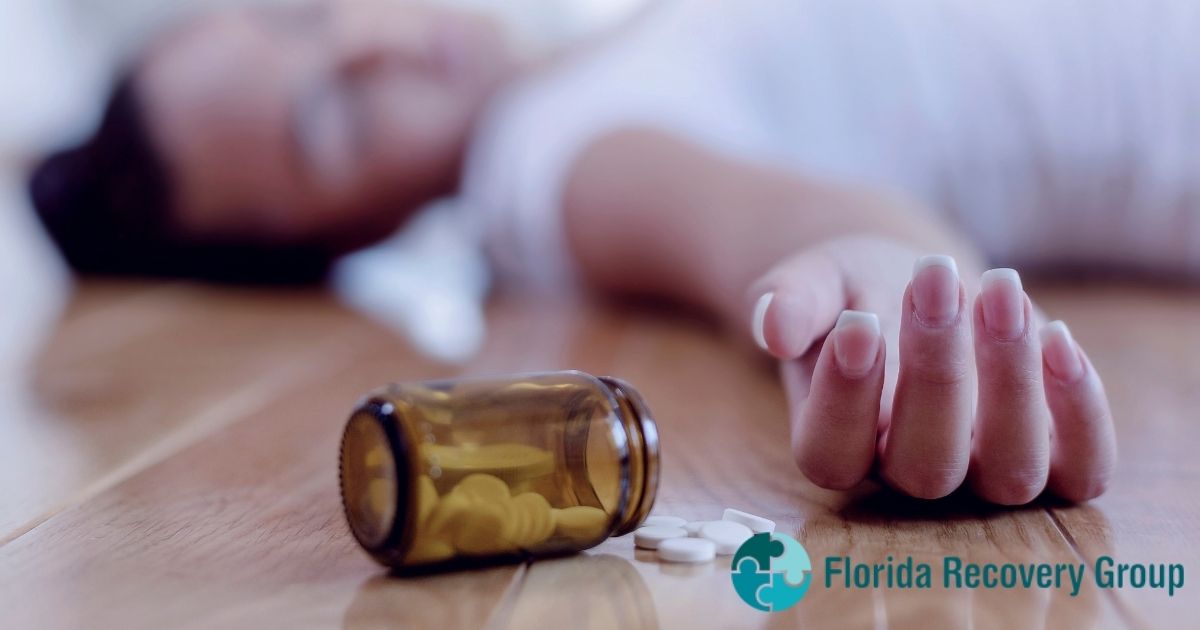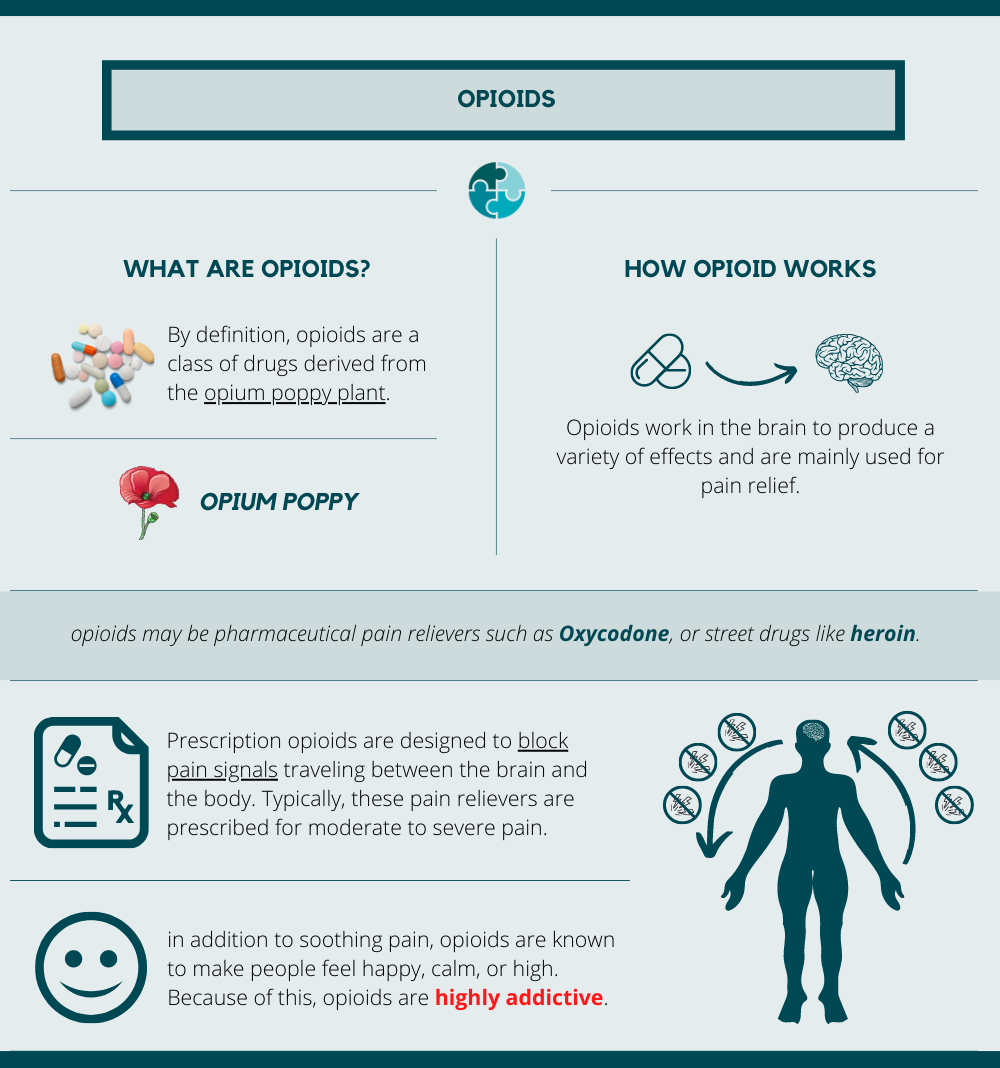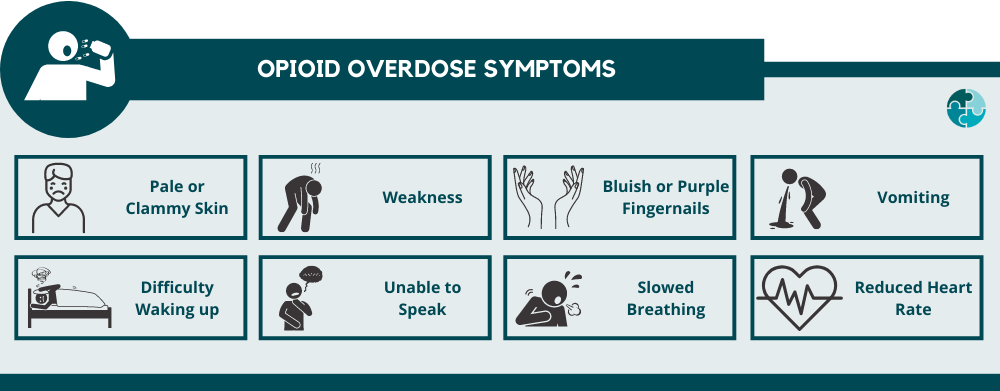
09 Aug A Look Inside Florida’s Opioid Crisis: What to Do in the Event of an Opioid Overdose
For several years Americans have watched the country’s opioid epidemic rise in prevalence, destroying lives in the process. The entire country has seen a rise in drug overdoses in the past year, with opioids taking credit for a majority of drug-related deaths. According to NPR, upwards of 93,000 people died of a drug overdose in the United States over the past year. Officials have stated this increase was caused by a lethal prevalence of fentanyl and stress driven by the COVID-19 pandemic.[1]
While many states in America have experienced this devastating increase in opioid overdoses, Florida has ranked second in the nation.[2] With that being said, Americans need to be educated on the opioid crisis as well as what to do in the event of an opioid overdose.
First, let’s take a look at exactly what opioids are.
What are Opioids?

By definition, opioids are a class of drugs derived from the opium poppy plant. Opioids work in the brain to produce a variety of effects and are mainly used for pain relief. Additionally, opioids may be pharmaceutical pain relievers such as Oxycodone, or street drugs like heroin.
Prescription opioids are designed to block pain signals traveling between the brain and the body. Typically, these pain relievers are prescribed for moderate to severe pain. However, in addition to soothing pain, opioids are known to make people feel happy, calm, or high. Because of this, opioids are highly addictive. Unfortunately, when opioids are abused, there is a high chance of the individual experiencing severe symptoms of overdose.
An Inside Look at Florida’s Opioid Crisis
Second to California on the list of highest rates of opioid overdose per state, Florida is experiencing a severe opioid crisis. In Florida, 7,579 people died of a drug overdose last year. This is a 37% increase from 2019.[2] The majority of opioid overdoses in Florida and across the nation involved a synthetic opioid.
According to the CEO of a substance abuse treatment program in Pinellas county, the COVID-19 pandemic has contributed to the rising rates of opioid overdoses.[2] Because of the stress of quarantines, job loss, and overall worry for family and friends, many people are turning to drugs and alcohol to cope. Unfortunately, this has led to a separate and quieter epidemic in Florida- the opioid epidemic.
The following include statistics on drug overdoses and opioid abuse in Florida:[2]
- In Tampa Bay, 1,200 residents died from a drug overdose in 2020.
- Pinellas County has seen a 35% increase in drug deaths in 2020.
- In Pasco County, there were 1,491 overdoses in 2020. Out of the 1,491 overdoses, 268 resulted in death. This is a 71% increase from 2019.
- Fentanyl deaths in Pinellas County increased by more than 52% from 2019 to 2020.
With COVID-19 continuing to affect the country, Florida officials are starting to make decisions on how to prevent the opioid crisis from the following suit. For example, Pinellas County has implemented an ordinance to promote harm reduction, including syringe exchanges.
Opioid Overdose Symptoms
Opioids affect a part of the brain that regulates breathing. In normal doses, the effects are slight enough to be considered safe. However, when an individual takes too much, it can lead to dangerously slow rates of breathing. So much so, that individuals may stop breathing entirely. This is referred to as an opioid overdose.
Symptoms of an opioid overdose may include:[3]

- Pale or clammy skin
- The limpness of the body
- Bluish or purple coloring to one’s fingernails
- Vomiting or gurgling noises
- An individual is unable to wake up or speak
- Breathing or heartbeat slows or stops altogether
Because opioids affect the rate of breathing, a key sign of opioid overdose is referred to as “death rattle”. To explain, “death rattle” is described as an exhaled breath with a distinct and labored sound coming from the individual’s throat. This sound indicates that the individual is near death and requires medical intervention immediately.
How to Respond to an Opioid Overdose
Drug overdoses are serious medical emergencies that require immediate action. With proper intervention and quick action, opioid overdoses may be reversed by the use of naloxone. Naloxone is a safe medication intended to stop the effects of opioids.
If you suspect that someone is having an overdose, the first thing you should do is contact 9-1-1. If Naloxone is available, administer the medication to the individual. This is done by injection into the muscle or by spraying Naloxone into the nose. Next, attempt to keep the individual awake. Make sure that the person is continuing to breathe as well. Lie the person on their side to prevent choking and stay with them until emergency medical professionals arrive.
Opioid overdose can be prevented by taking medication as your doctor prescribes it and abstaining from illicit street drugs. If you are feeling stressed, take time to talk to your friends and family. Consider contacting a mental health professional before using substances to cope.
If you or a loved one are dealing with the effects of substance abuse such as opioid addiction, contact Florida Recovery Group for help today.
References:





